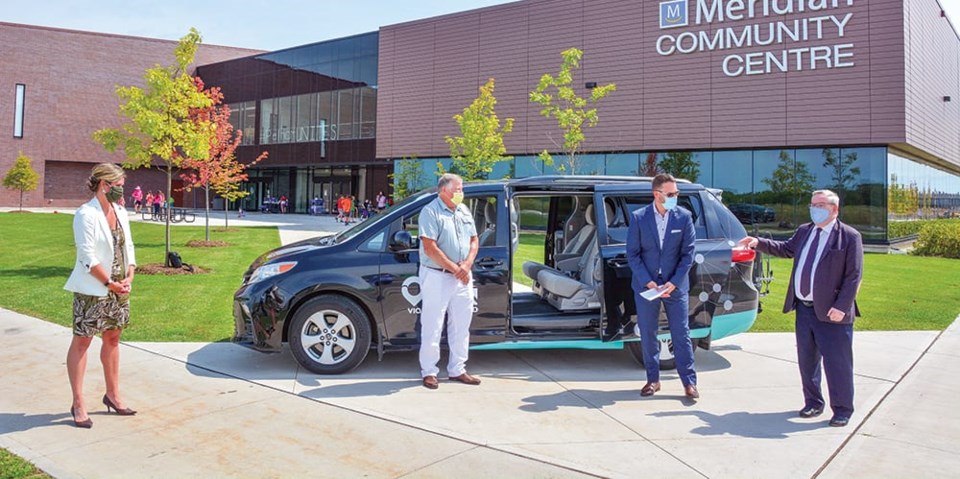There are big changes in Niagara in the world of public transit for 2023. For every community in the area, joining the new regional transit service means phasing out its local system and passing the cost onto the Niagara Region – which will be passed back down to taxpayers.
Starting this year, the Region is taking over transit costs for all 12 municipalities. Those costs will be added to the Region’s annual tax levy, with a line in the tax bill indicating how much transit will cost taxpayers this year. Each municipality’s share of the estimated $55 million operating budget for 2023 has been determined by factoring assessments and the hours of transit system usage in each community.
Each municipality will have a different number of hours the service is used, explains Niagara-on-the-Lake Lord Mayor Gary Zalepa, who was chair of the Region’s budget committee last year, when the formula for transit costs was determined.
The projection for NOTL is for 16,000 hours of service.
Pelham, with a similar population to NOTL, is projected to have 5,600 hours, and pay a total of $1,118,510. Thorold, also with a similar population, is estimated to use about 15,000 hours of service, the closest in usage to NOTL, but will pay a total of $1,775,411 for a combination of regular bus routes and OnDemand for specialized transit services.
At the Region’s budget review committee of the whole meeting on Thursday, Jan. 19, the Niagara Transit Commission (NTC) shared the details of its 2023 operating budget: the estimated $55 million budget is an increase of $6.48 million from the budget estimated back in February, 2022.
The majority of expenses will go to pay for labour-related costs and operating expenditures. The increase, according to the NTC, is because of 2022’s reduction in farebox revenue, and for service enhancements.
While the Region’s budget review committee of the whole approved the proposed operating budget for 2023 during its Jan. 19 meeting, the Region’s general council voted later in the evening to defer its motion to vote on approving the budget.
Frank Campion, the Mayor of Welland, raised concerns about the rising cost of transit and said he and other councillors should have more time to review the figures.
“We’re getting some surprises in the budget now,” he said. “Currently, I’m not willing to approve it because of the impact on our municipality and our ratepayers – and they’ve got enough problems already with financial issues and inflation.”
Alongside the $55 million net levy, there will be a one-time special levy in 2023 for employment liabilities, for St. Catharines, Niagara Falls and Welland. According to the NTC, this is for the “significant cost” of employees in public transit transferring to its organization and receiving medical, dental, and long-term disability benefits. That levy will be recovered from St. Catharines, Niagara Falls and Welland and put in a “special purpose” reserve to fund these expenses.



